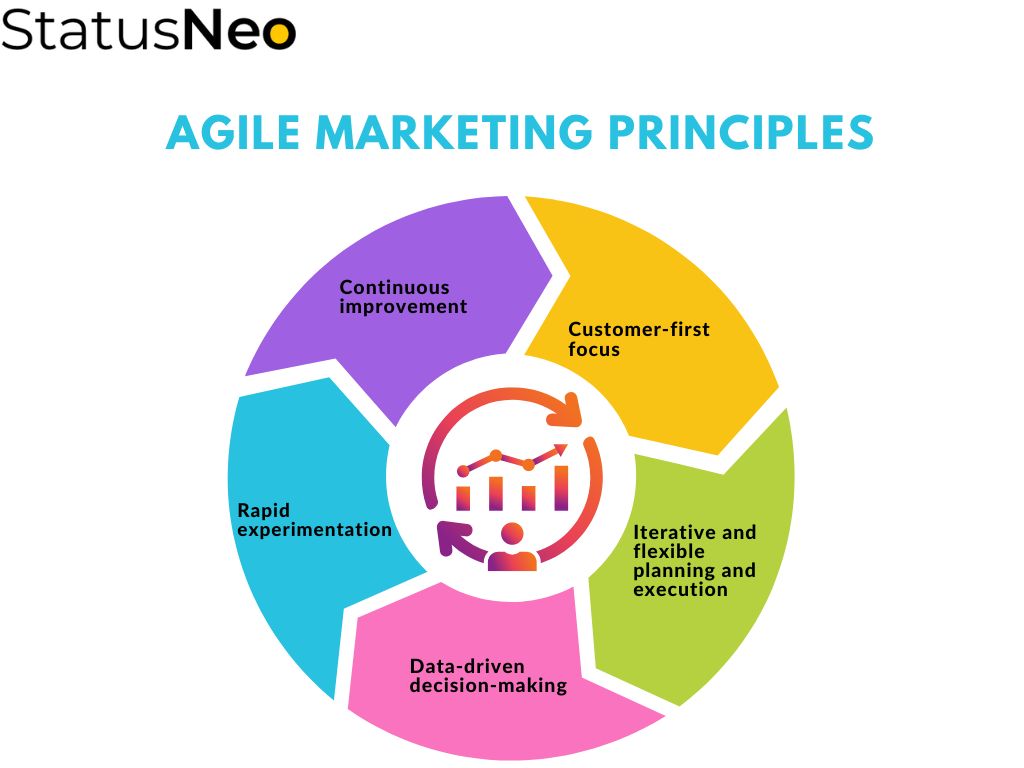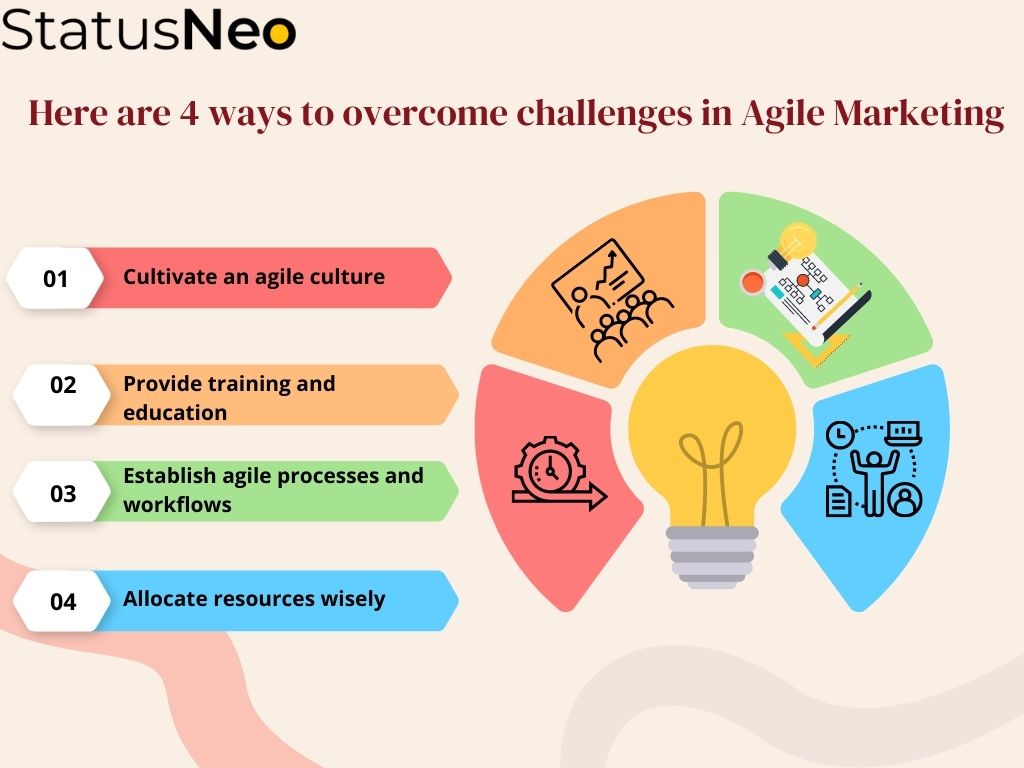Agile Marketing: The Game-Changing Revolution
As we all are aware that every organization follow ‘Agile’ approach in today’s time where each phase and step include Agile modules. Also, in our daily life we are surrounded by all the Agile methodologies.
Just want to mention an insight of our daily life:
For example, let’s say you are planning a family vacation. Instead of trying to plan out the entire trip in advance, you could adopt an Agile approach by breaking down the planning process into smaller, more manageable tasks.
We could start by creating a list of potential destinations and activities and then prioritize them based on the following parameters given below:
–What is most important to our family.
– From there, we could work on planning each aspect of the trip in short sprints, such as booking flights and accommodations, planning daily itineraries, and making reservations for activities.
By using an Agile approach, you would be able to adapt quickly to changing circumstances, such as weather changes or unexpected closures of attractions. You could also make adjustments to your plans based on feedback from your family members, ensuring that everyone is happy with the vacation.
So, what is Agile Marketing?
Agile marketing is the turbocharged approach to marketing that thrives on flexibility, collaboration, and rapid experimentation. With smaller, adaptable tasks, Agile marketing allows you to optimize your marketing strategy to deliver maximum value to your customers based on their feedback and market trends.

5 Key principles of Agile Marketing
5 Key Principles to Break Free from traditional marketing Constraints and drive customer-centric success!
- Customer-first focus: Agile marketing puts the customer at the center of the marketing strategy, with a focus on delivering value and meeting their evolving needs.
- Iterative and flexible planning and execution: Agile marketing involves iterative planning and execution, with campaigns broken down into smaller, manageable tasks that can be executed quickly and adapted as needed.
- Data-driven decision-making: Agile marketing emphasizes data-driven decision-making, with insights gleaned from customer behavior and market trends used to inform marketing strategies and tactics.
- Rapid experimentation: Agile marketing enables rapid experimentation, with tests and experiments used to validate assumptions and improve campaigns quickly.
- Continuous improvement: Agile marketing prioritizes continuous improvement through regular evaluation, data-driven insights, and ongoing optimization to meet evolving customer needs.

Navigating the Challenges
While adopting Agile marketing can provide many benefits, there are also potential challenges and considerations that organizations need to keep in mind. Here are some key challenges and considerations to keep in mind:
- Organizational culture: Agile marketing requires a cultural shift towards more collaborative, cross-functional, and flexible ways of working. Organizations that are accustomed to hierarchical decision-making, siloed departments, or traditional marketing approaches may struggle to adopt Agile marketing.
- Resource allocation: Agile marketing requires a dedicated team, including product owners, scrum masters, and team members, which may require a significant investment in resources. Organizations need to ensure that they have the necessary resources in place to support an Agile marketing approach.
- Process and workflows: Agile marketing involves a different approach to project management, including iterative processes, continuous feedback, and shorter cycles. This may require a rethinking of existing processes and workflows and may take time to implement.
- Training and education: Agile marketing requires a different skill set than traditional marketing approaches, including Agile methodologies, project management, and collaboration skills. Organizations need to provide training and education to ensure that their teams have the necessary skills and knowledge to adopt Agile marketing approach.

Impact of Agile Marketing
Agile marketing can have a significant impact on marketing teams and organizations. Here are some of the ways in which it can make a positive impact:
- Increased speed and efficiency
- Improved collaboration
- Better decision-making
- Greater flexibility
- Increased customer satisfaction
Future of Agile Marketing
The future of Agile marketing is exciting, with this approach expected to continue growing in popularity as organizations seek to stay ahead in a constantly evolving marketplace. Here are a few potential developments to watch for:
- Greater adoption across industries: Other industries are expected to adopt Agile marketing as they recognize its benefits, following the trend set by the tech industry.
- Integration with AI and automation: Agile marketing will harness the power of AI and automation for efficient work and data-driven decisions as technology advances.
- Expansion of Agile beyond marketing: As the Agile approach proves successful in marketing, other departments within organizations may adopt this methodology for their own projects.
- Emphasis on customer-centricity: Agile marketing puts the customer first, and this emphasis will grow stronger as companies aim for greater customer personalization.
Conclusion
In conclusion, Agile marketing has emerged as a game-changing approach for businesses looking to adapt to rapidly changing markets and customer needs. By fostering a culture of flexibility, collaboration, and continuous improvement, Agile marketing enables organizations to stay nimble and responsive in a world where customer demands are constantly evolving. Say goodbye to slow and stagnant marketing and say hello to the lightning-fast pace of Agile marketing!
Add Comment
You must be logged in to post a comment.








